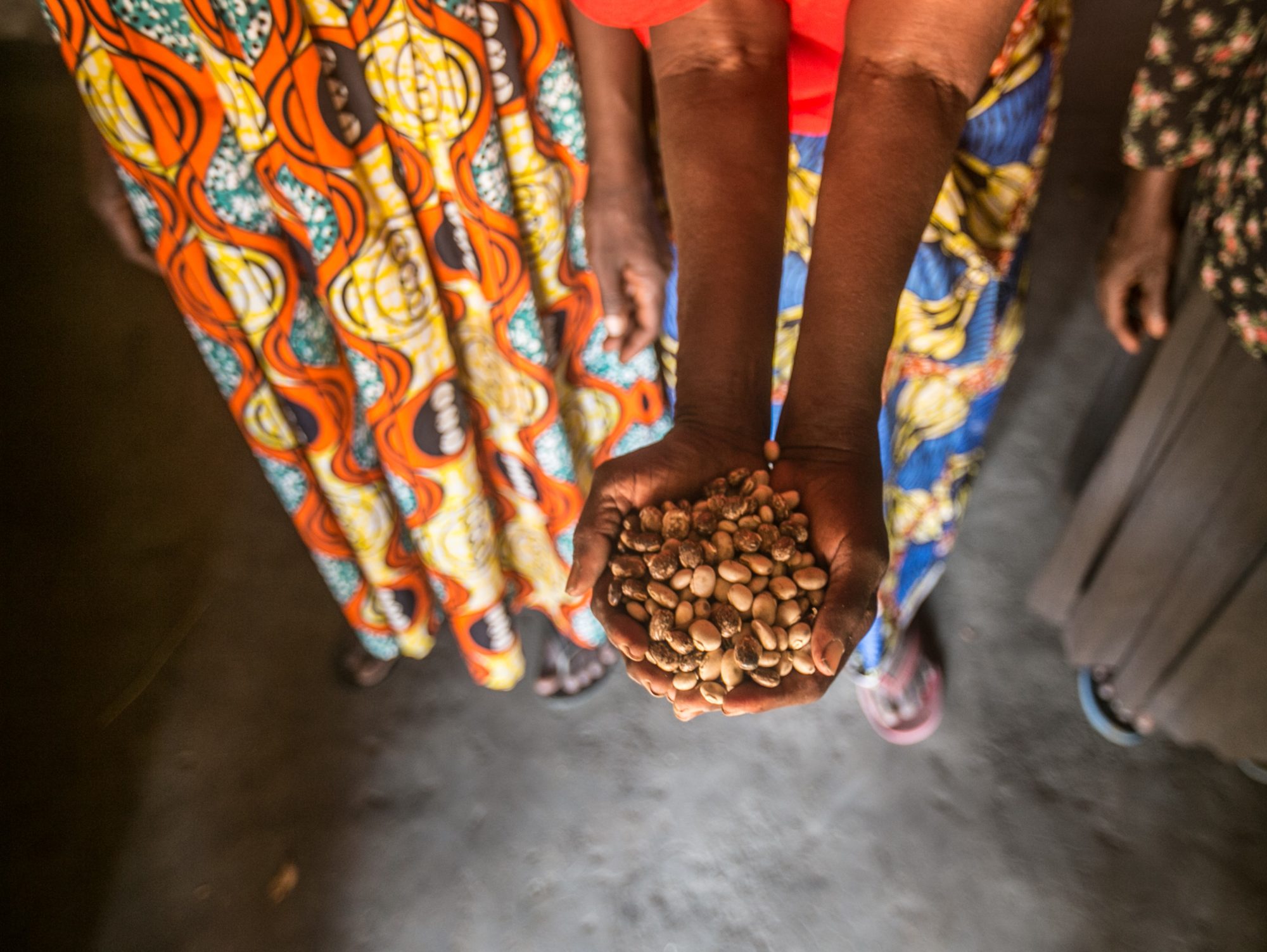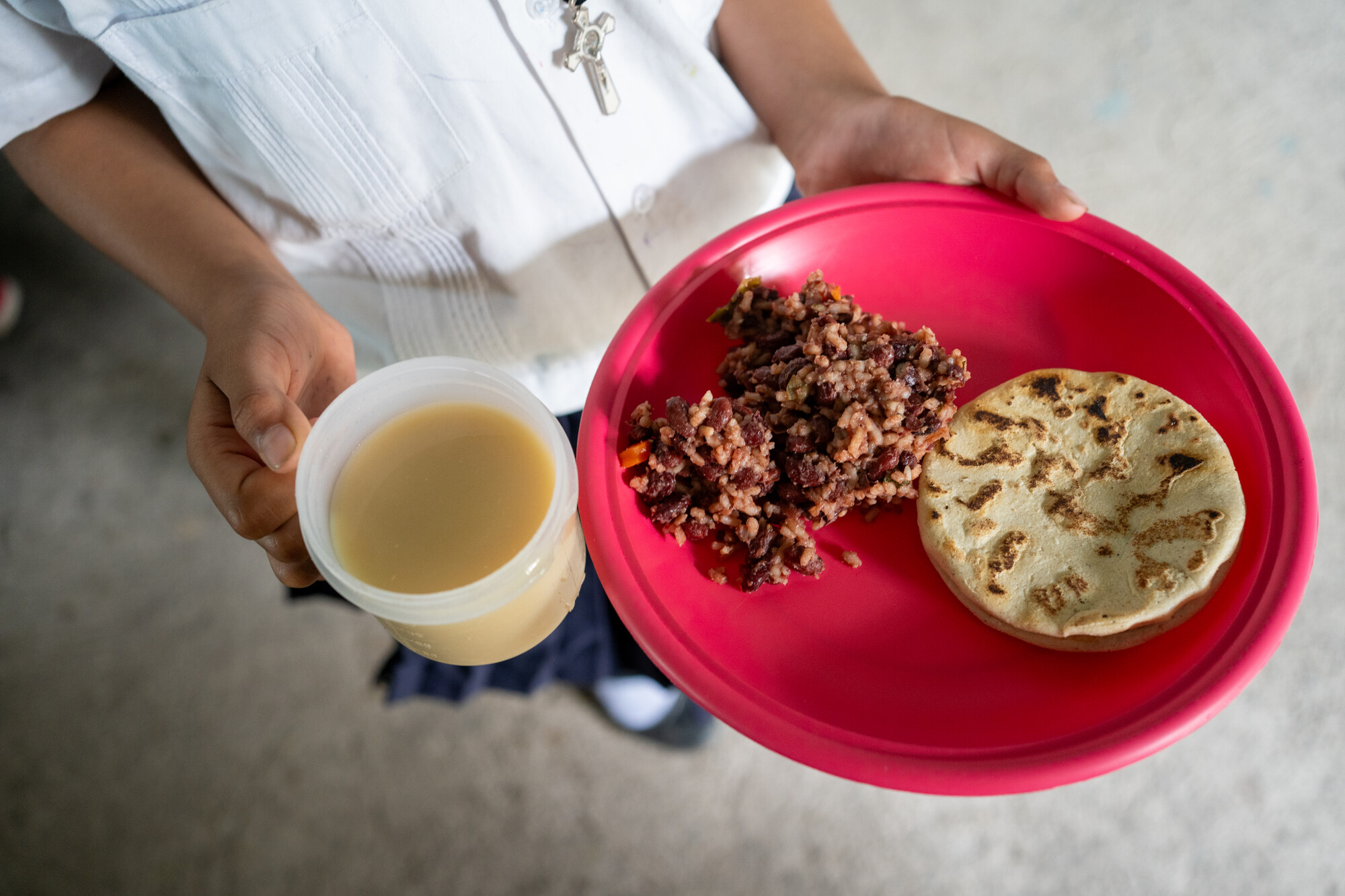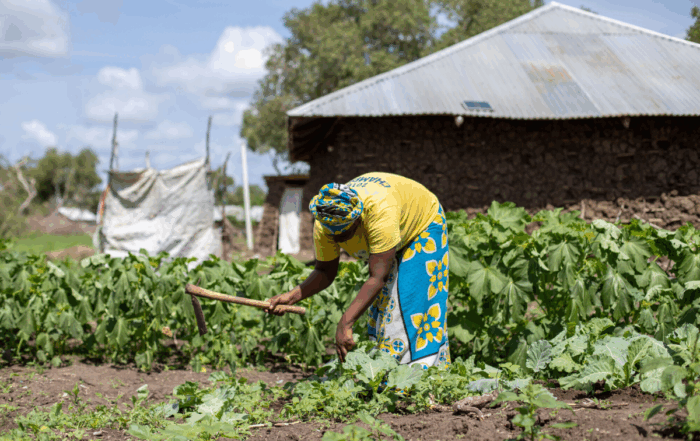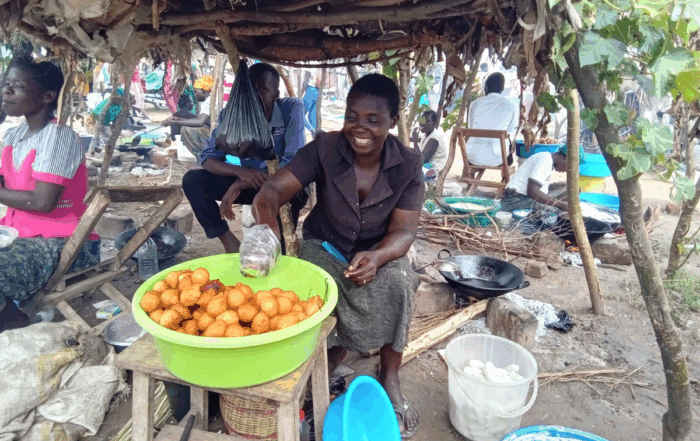How You Can Help Solve World Hunger

In a world with a population of 7.8 billion people, where every day children go hungry and families live with the constant fear of not having enough to eat, is it possible to achieve the UN sustainable development goal of Zero Hunger by 2030?
Even before COVID-19, progress on ending hunger was slowed by human conflicts, a growing global refugee crisis, and climate change issues. But, the pandemic has become a set back for humanitarian efforts, straining the global economy and resulting in a marked increase in food insecurity around the world.
None of that means we can’t meet the goal of zero hunger by 2030, but to do so, we have to take serious and effective measures today.
Although there are countless ways to reduce global hunger, the following are the seven most effective and actionable ways to address the problem.
7 ways to solve world hunger
Ending world hunger is not achieved with “bandaid” solutions ㅡ handing out food to the hungry only feeds them today. We need to look for sustainable ways to address hunger. We can only work effectively to end global hunger if we, first of all, tackle what causes it.
Hunger in simple terms is a lack of food. Some of the catalysts for world hunger include war, an outbreak of disease, poor weather conditions, increasing food prices, low wages, and unemployment. Now that we have named some of the root causes, let’s see how we can alleviate the world’s hunger problems together.
1. Boost income with improved agriculture
Although the world currently produces enough food to feed all its population, one in nine people are starving each day. Improvements in agriculture play a crucial role in addressing this imbalance both by helping to grow more food and increasing the purchasing power of farmers.
A large number of those living in poverty depend on agriculture to survive. They are faced with many obstacles, such as a lack of access to credit, resources, and expertise to increase their harvest. Therefore, boosting the income and making low-interest loans available to those in the agricultural sector can go a long way to reducing world hunger.
Improving agriculture involves three primary objectives – environmental health, social equity, and economic profitability. Better access to markets puts farmers in contact with the people and resources they need to increase production, feed their families and grow incomes.
Through your donation to improving agriculture production, you can help both the environment and the world’s population, and play a vital role in helping to end world hunger.
Meet Lydia―she was frustrated that her crops were not producing enough to meet her family’s food needs, but thanks to World Renew’s training in Conservation Agriculture and the changes she made, her family is thriving.
2. Sustainability – now and in the future
To aim for zero hunger for today’s population simply isn’t good enough. In planning to feed every man, woman, and child on this planet, we must also think ahead to future generations. Meeting current needs without jeopardizing future generations’ capacity to meet their own needs, is only achievable if we work towards sustainable food sources for everyone, for today and tomorrow.
Often, planning for the future means making the right investments today. This is why World Renew invests in communities and people, giving them the training, tools, and confidence needed to grow a more sustainable future.
You can read about Sabina, who participated in several conservation agriculture trainings and how over time, she made big changes on her farm that helped her and her family thrive.
3. Prepare for disasters and manage resources
Learning about sustainable resource management is important for communities that depend on their natural resources for their income and food security. Years of bad management, such as livestock overgrazing, can worsen farmland and make it harder for farmers to make a living.
This makes these communities particularly vulnerable when a natural disaster strikes, as problems like soil erosion and forest fires worsen. Many go hungry as food crops take a long time to recover.
Simple crop protection and diversification strategies can be highly effective. It is also necessary to protect homes and animals, as losing valuable shelters and livestock can contribute to increased vulnerability and food insecurity.
For example, in 2018 heavy winds and rain severely damaged buildings in the village of Heremakono in Sierra Leone. World Renew was able to help through the International Rapid Response Fund and managed to support a small construction project to repair the roofs of the two schools and ensure that these children could continue their education.
4. Promote gender equality and empower women in agriculture
Gender justice is another key factor in ending global hunger.
Women make up to half of the farming labour force of many countries, but often do not have the same opportunities and many women farmers struggle with lack of income and food insecurity. With fair access to resources, women farmers can increase their productivity by as much as 20 to 30%; meaning they and their children can achieve better food security.
World Renew strives to implement programs, in the communities where we work, that promote the fair and equal treatment of women and girls. World Renew also encourages women to get involved in the decision-making process within their families and to become leaders within their communities.
One of the many communities that World Renew has helped includes a community in Sierra Leone. This community had expressed interest in improving their quality of life and so the process began. World Renew provided two days of training that includes teaching the community about the role of women as part of the VDC, the role of democracy, practicing leadership as a team, having mutual respect for each other, creating priorities, making plans, and achieving results. Read more about how World Renew helped this community here.
5. Improve hygiene and nutrition
Malnutrition is one of the most common and tragic health consequences of ongoing hunger. But not having enough to eat isn’t the only thing that causes malnutrition. It is essential to educate people on how important nutrition and proper sanitation and hygiene are for good health.
For example, failure to preserve clean drinking water can lead to waterborne diseases which can also cause malnutrition.
In many rural communities, where access to clean water for cooking and self-care is not available, basic hygiene like washing hands can become difficult. In some communities, often there are no toilets or proper drainage in homes, so people are exposed to unsanitary conditions.
Learn how World Renew and our local partners are implementing Water Sanitation and Hygiene (WaSH) strategies and helping to spread the word about the importance of proper sanitary and hygiene practices in vulnerable communities.
6. Improve food storage systems
For a successful harvest, the food source must be safely stored to ensure that it can sustain communities over a longer period of time. For instance, innovations such as solar dryers help speed up the conventional sun drying practice for grains, this, in turn, saves the nutritional value and prolongs shelf life.
7. Access to education
The solution to most challenges in the world is the improvement of the educational system. In developing countries, this is especially powerful. Education offers better career opportunities, as well as better income and food security.
8. Create more practical ways you can help
In the Bible, Galatians 6:2 teaches us to “Carry one another’s burdens, and in this way, you will fulfill the law of Christ.” We all have the responsibility to help one another. We each have a crucial role in solving world hunger.
Here are some practical ways we can all get involved in helping to solve world hunger:
- Reduce food waste
- Compost food scraps to help fertilize and enrich the soil
- Make your diet more sustainable
- Become informed of the issues surrounding hunger
- Use your voice
- Pray
- Donate
What are we doing to help solve world hunger?
World Renew creates solutions and renews lives by working alongside communities, households, local leaders, and children. World Renew has been committed to providing holistic, community-based solutions for ending hunger s in more than 60 countries worldwide.
We also educate communities on how to prepare for the implications of natural disasters while also providing humanitarian assistance to communities in crisis. Our programming addresses the urgent food security needs of communities in emergencies, such as the aftermath of a natural disaster, through in-kind food and donations.
Giving hope in a world of hunger
With millions of children dying each year from malnutrition and hunger, we believe in ending hunger by empowering communities around the world with sustainable development resources and tools.
You can get involved in helping our world to reach the goal of Zero Hunger by 2030! Partner with us to give hope to families struggling with hunger today.
Donate to our campaign to end world hunger.
MORE STORIES AND NEWS
Canada: Fasting for Change: Fighting World Hunger
Fasting for Change: Fighting World Hunger October 10, 2025 Fasting for Change: Fighting World Hunger
Tanzania: Building a Better Future
Building a Better Future in Tanzania October 7, 2025 Building a Better Future in Tanzania
Uganda: Fostering an entrepreneurial spirit
Fostering an entrepreneurial spirit in Uganda By Carol Musoke September 11, 2025 Fostering an entrepreneurial






